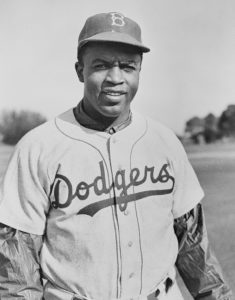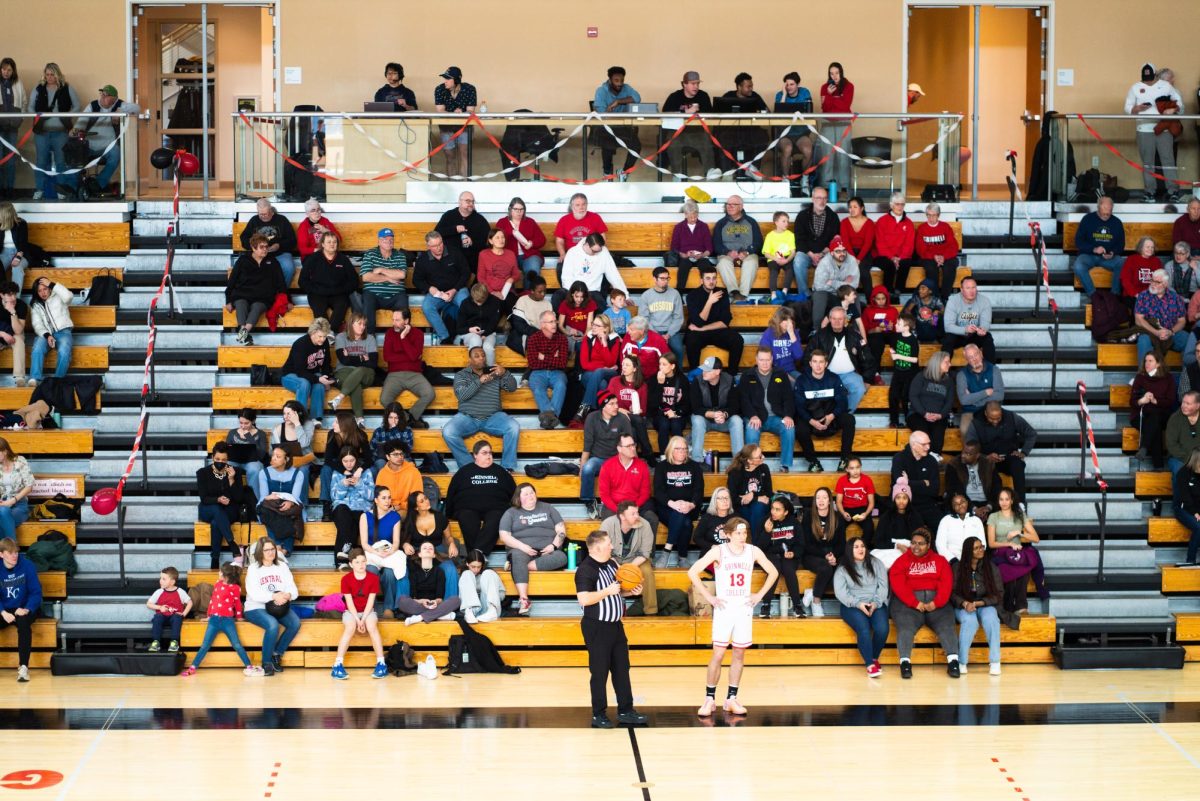
Every April 15, Major League Baseball (MLB) honors Jackie Robinson, a man famous for breaking baseball’s color barrier in 1947 at the behest of Brooklyn Dodgers Executive Branch Rickey. Though a prodigious talent, Robinson’s production on the field only reflects a fraction of the life he lived off it.
A multi-sport athlete at UCLA and a navy veteran, Robinson was a standout player in the Negro Leagues post-WWII when he caught the eye of Rickey, who had been looking to integrate baseball for several years. Ultimately, he wanted to tap into the new revenue streams that Black players represented.
While certainly not the most talented Black player of his era — that honor probably belongs to Satchell Paige or Josh Gibson — Robinson had three very important things going for him: he was young, he went to college and he served in the US military. As such, Robinson had experience playing in front of often-hateful white crowds and serving alongside white men. Rickey knew that the first man to integrate baseball would be the victim of discriminatory actions, but the lengths that America’s favorite pastime went to keep its conscience clear and its players white surely surpassed even Rickey’s wildest fears.
From the first day he stepped onto the diamond at Ebbets Field, Robinson was the subject of racially charged abuse everywhere he went. His team was denied service because they had a Black player. He was thrown at and spiked, the victim of poor umpiring and dubious calls at first base. Nearly two decades before the American Civil Rights Movement of the ’60s and’ 70s, Robinson was, as Martin Luther King, Jr., famously said, a “pilgrim walking the lonesome byways towards the high road of Freedom.”
And, despite a stellar baseball career that included an MVP Award and six all-star appearances, Robinson truly did walk a long and lonesome road. But criticisms about how Robinson responded to his position are not fair to make about a man who spent his entire life fighting for what he believed in.
In fact, the grace and passivity extoled upon Robinson in various sanitized media depictions or one-dimensional narratives, though well-intentioned, fail to properly illustrate who Jackie was as an individual. In the 1940s, he was court-martialed for failing to move to the back of a military bus, and in 1959 he became the first major athlete to write a nationally syndicated newspaper column, which Robinson utilized to bring Civil Rights issues to the forefront of the American consciousness.
It wasn’t just conservative media attacking Robinson’s right to have a political opinion, either. It was everyday Americans, both Black and white.
When examining historical figures like Robinson, there is a tendency to sanctify them. But Robinson, much like the pioneering Muhammed Ali and Jim Brown who would follow in his footsteps, was no saint. Rather, he was a complicated man who had a complicated relationship with much of Black America during his lifetime. A political conservative, Robinson supported President Richard Nixon and was even famously branded as “the white man’s hero” by Ali.
Despite this, Robinson continued to push for equality in all spheres of American life, lamenting that he had lost a lot of the faith he had in white progressives, as evidenced by baseball’s decided lack of front office or managerial diversity.
Aside from mythologizing our icons, American history also tends to view our “firsts” as kinds of irreversible turning points in terms of equity and inclusion. However, any educated individual, especially those who have lived lives in the shadow of privilege and oppression, can tell you that sexism in tennis didn’t die out after Billy Jean King beat Bobby Riggs; that Native Americans weren’t welcomed as legitimate athletes after Jim Thorpe dominated the Olympics; that racism didn’t cease to exist after Barack Obama was elected president. Robinson’s exploits are no exception.
While baseball players now come from all over the world — with a large African American and Latin American contingent in the MLB today — it is hard to find evidence of diversity in the team management structures. Just last year, Adam Jones, star centerfielder for the Baltimore Orioles, was the subject of racist taunts at Fenway Park, located in a city which would like to think itself removed from its racially-charged past.
In his twilight years, Robinson remarked, “If I had to choose between baseball’s Hall of Fame and first-class citizenship, I would say first-class citizenship to all of my people.





























































